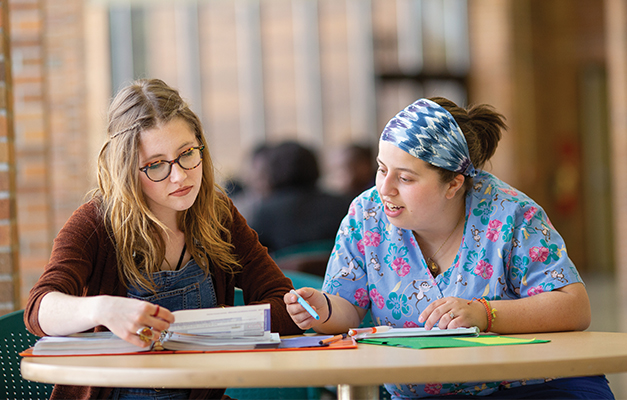If you are a natural caregiver looking for a career where you can make a difference in the lives of individuals in our community who are at-risk, Anoka Tech’s Behavioral Health and Human Services program might be a smart choice for your future.
The Behavioral Health and Human Services degree program prepares students for positions in several areas in the health, human services and education fields.
As a graduate, you would have a well-rounded educational base in the areas of social work, sociology, psychology and other health-related areas to make a difference in the lives of individuals from a variety of vulnerable populations.

Degree that provides an affordable foundation to start your career or transfer

High growth rate compared to other careers in Minnesota

Rewarding career where you support people during difficult times
Potential Jobs:
- Community Health Worker
- Social and Human Service Assistant
- Caseworker
- Advocate
Community Health Worker Highlight Salary Information
Median Hourly Wage: $23.39
Top earners: +$31
Information provided is for Minnesota. See current data at careerwise.minnstate.edu
About the Program
Students can choose to complete the Behavioral Health & Human Services AAS program part-time. Part-time students will take longer to complete their program than students who follow the full-time sequence listed on the official program guide. Because every course may not be offered each semester, it is important for part-time students to reach out to their faculty advisor for help in planning their long-term, part-time course sequence.
Below, new students can find first semester part-time course options. After the first semester, work with your faculty advisor to plan future semester.
First Semester Course Options
Five credits: BHHS 1005, BHHS 1010
Eight credits: BHHS 1005, BHHS 1010, BHHS 1040
Eleven credits: BHHS 1005, BHHS 1010, BHHS 1040, SPCH 1200 or SPCH 1500*
Twelve credits: BHHS 1005, BHHS 1010, BHHS 1040, ENGL 1107 or PSYC 1406*
*Students with ACCUPLACER Reading Comprehension scores below college-level should take the required developmental reading and English courses before moving on to SPCH, ENGL, or PSYC classes.
Developmental Courses
BHHS students are required to take college-level English and Biology courses (ENGL 1107, BIOL 1106). These courses have a college-level Reading Comprehension ACCUPLACER prerequisite. Students with Reading Comprehension ACCUPLACER scores below college-level should take the developmental Reading & English courses required
by their placement bracket in their first or second semester.
Current Students
Students must earn a cumulative 2.0 GPA or higher to be eligible for graduation from this program.
Minnesota Law requires that any person who provides services that involve direct contact with patients and/or residents at a health care facility licensed by the Minnesota Department of Health have a background study conducted by the state.
Start Dates:
Fall semester: August
Spring semester: January
Upcoming Events:
Important Dates:
Zakia Robbins-McNeal
zakia.robbins-mcneal@anokatech.edu
763-576-7710
Enrollment Services
EnrollmentServices@anokatech.edu
763-576-7710







